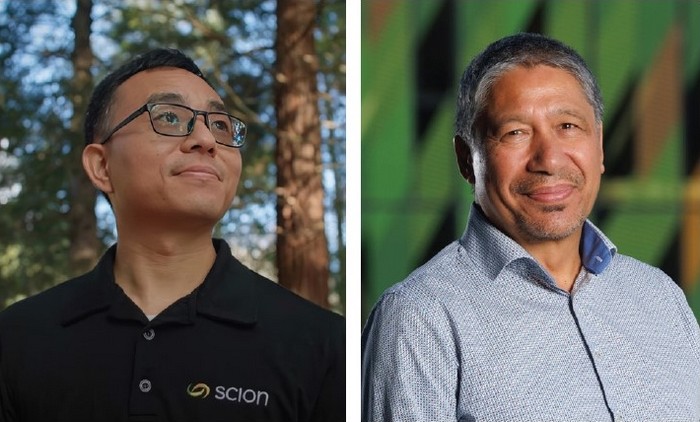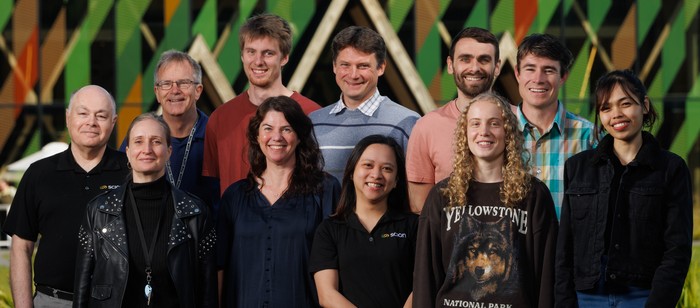Recognising staff achievements
Scion’s leadership in biofuel, microplastics and climate change adaptation was celebrated by Scion and peers at the 2023 Science New Zealand Awards.
Scion’s high achievers have been recognised at the 2023 Science New Zealand Awards.

Scientists from all seven Crown Research Institutes and Callaghan Innovation were represented at the awards ceremony in Wellington on December 6. The awards were in three categories – Early Career Researcher, Lifetime Achievement and Team.
Scion chief executive Dr Julian Elder says the awards are a fantastic opportunity to connect with others in the science and innovation space and acknowledge achievements.
“The awards show the depth and breadth of the important work we do at Scion and the effort our staff put in every day.”
A friendly face and mentor to many, Dr Bing Song received one of eight Early Career Researcher Awards.
Since joining Scion in 2019, Song has been a primary author on eight papers and one international report, a corresponding author on six papers, and co-authored another 12 papers. To date, 31 of his 25 papers have been published in Q1 journals.
He leads the Solid Biofuel project, which was recently showcased at MOTAT, Auckland’s Museum of Transport and Technology, when biofuel briquettes were used to power a 132-year-old steam tram.
He leads the Solid Biofuel project, which was recently showcased at MOTAT, Auckland’s Museum of Transport and Technology, when biofuel briquettes were used to power a 132-year-old steam tram.
Song also actively reviews papers for journals in his field, PhD theses for universities and is an editor of two international academic journals. Song works to mentor and grow his colleagues.
The Team Award recipient from Scion was the microplastics team. The team has been working to address a major knowledge gap in environmental science in New Zealand, asking how much microplastic is in our marine environments, what is it, where is it coming from and what environmental consequences does it have?

The team has contributed to a wide range of programmes including fundamental research, community engagement and outreach, and commercial projects with New Zealand businesses.
The insights from this research will lead to strategies to reduce microplastics pollution and its impact. Risk assessment and education around reducing microplastic pollution will be the next steps.
The third award category was the Individual/Lifetime Achievement Award presented to Scion emeritus scientist Dr Tanira Kingi (Ngāti Whakaue, Ngāti Rangitihi, Te Arawa, Ngāti Awa).
His more than 30-year career has covered agriculture, forestry and horticulture. In his time at Scion as research leader in primary industry systems, Kingi worked collaboratively with teams across the organisation, providing mentorship and strategic advice.
He now provides strategic direction as an emeritus and holds several government and ministerial advisory group appointments, including serving as a Climate Change Commissioner.
His ethos centres around developing research that has impact and drives change. His work has included invaluable contributions to environmental sustainability, land use optimisation, and business resilience.
